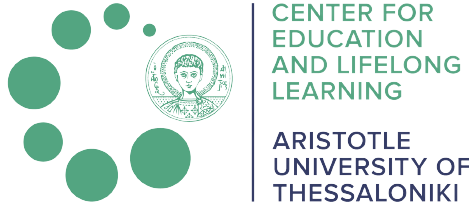The present Regulation for the Management of Trainees’ Complaints and Objections was approved by the 68th board meeting of the Center’s Council.
Purpose
The aim of the Regulation for the Management of Trainees’ Complaints and Objections is to upgrade the operation of the Center, focusing on the respect of all those involved in the educational process, in particular the trainees whom it has the obligation to serve. Goal of the Center is the continuous improvement of the quality of the provided educational and administrative services, based on the principles of transparency, integrity and accountability.
For this purpose, the Center of Education and Lifelong Learning of AUTh puts into effect from 16/6/2023 the Regulation for the Management of Trainees’ Complaints and Objections. In that way, it will effectively and confidentially ensure the fair and immediate management of complaints.
Definitions
- A complaint is defined as the expression of dissatisfaction on the part of a trainee due to the denial of his/her expectations regarding the qualitative and/or quantitative content of the services provided.
- An objection is defined as the formulation of objections or reservations on the part of a trainee, regarding the pending or problematic resolution of an issue/problem that concerns him/her.
Field of Implementation
As responsible citizens, the trainees must study the Center’s Regulation of Studies in order to know their rights and obligations. The Regulation for the Management of Trainees’ Complaints and Objections aim to solve problems, such as:
i. disagreement over studies
ii. inappropriate behavior by a member of academic or administrative staff
iii. incomplete information from a member of academic or administrative staff
Trainees can also submit a complaint when an action or decision that came to their attention is inconsistent with:
- The Regulation of Studies,
- the prescribed procedures concerning academic teaching
- the rational use of facilities and infrastructure,
- the protection of intellectual property and copyright,
- appropriate work behavior,
- equality and the fight against harassment and sexual harassment.
Conditions for submitting complaints
Complaints to be accepted must:
- be named
- described concisely and clearly
- not contain abusive, defamatory or false content
- be submitted within thirty (30) days from the day the problem occurred
It is also possible to maintain anonymity, if it is explicitly indicated on the COMPLAINT SUBMISSION FORM (at the end of the description of the complaint) and only if the investigation of the complaint is possible without the disclosure of the applicant’s personal information.
It is noted that the Center archives and manages the information concerning the personal data of the trainees, such as contact details, copies of studies and other data of personal nature, in accordance with the existing legislation on Personal Data Protection “European Regulation 2016/679 (General Data Protection Regulation, GDPR)”
Complaints management
In any case, submitting a complaint should not be a reactive action for any unsatisfied request of a learner. Good communication and willingness to solve a problem interpersonally is a basic academic strategy of the university and must be chosen before a problem turns into a complaint.
Stage 1: Direct Resolution
HEARING: EXAMINATION of the student’s complaint-problem by the scientific director of the program.
The trainee reports the complaint-problem to the scientific director of the program. The scientific director examines the complaint-problem in collaboration with the trainee and a solution is proposed.
Stage 2: Formal Resolution
ADMINISTRATIVE EXAMINATION: In cases where, after the completion of the direct resolution process, the trainee insists on the resolution or the situation is still problematic, then he/she can submit his/her written complaint to the Center through protocol, using the following COMPLAINTS SUBMISSION FORM in which they will state, among other things, the hearing procedure followed.
The Center is taking the necessary actions to examine/investigate the problem. Depending on the nature of the problem, the Center can call the trainee to a hearing examination and request the assistance of any member of the Council or refer the complaint to a Council Meeting.
In cases where the complaint is referred to a Council Meeting, the decision is final and the trainee cannot submit an objection and make use of the third stage of the complaints management process.
Within a reasonable period of time and depending on the nature of the complaint-problem and the urgency of the matter, the trainee is informed of the outcome of the actions taken and the decisions taken regarding the complaint.
Stage 3: Appeal and final complaint review
APPEAL:
Examination of a complaint at a Council Meeting. In cases where, after the completion of the administrative review process of the complaint, the trainee insists on the solution or the situation is still problematic, then he/she can resubmit his/her written complaint to the Council of the Center, through a protocol, using the COMPLAINT SUBMISSION FORM below stating, among others, that the hearing and administrative review procedures were not effective.
In cases where the complaint was referred to a Council Meeting at the Administrative Examination stage, the trainee may not submit an objection and make use of this step of the procedure. The decision taken by the Council is definite.






